We all know that we shouldn't criticize our own appearance or hate on our bodies. We all know that the media glorifies an unrealistic standard of beauty that not even the models themselves achieve ("Even I don't wake up looking like Cindy Crawford!") We all know that poor body image contributes to eating, mental, and health disorders.
Okay sure, there are health things to think of. But as long as we exercise moderately and eat somewhat healthfully, we all know we should be confident in how we look, just the way we are--with makeup and fancy clothes, or barefaced in sweats.
But it's still all too easy to be critical of ourselves in a way we wouldn't dare dream of being to someone else. I would cut off my tongue before I would encourage one of my friends to skip meals in order to lose a bit of tummy fat—yet here I find myself having not eaten till dinnertime today to try to have flat(ter) abs for a dance event next week. I would never call one of my friends fat, yet when I stood naked in front of my mirror yesterday and saw the few places on my body where I could tone up, that's the word that popped into my head.
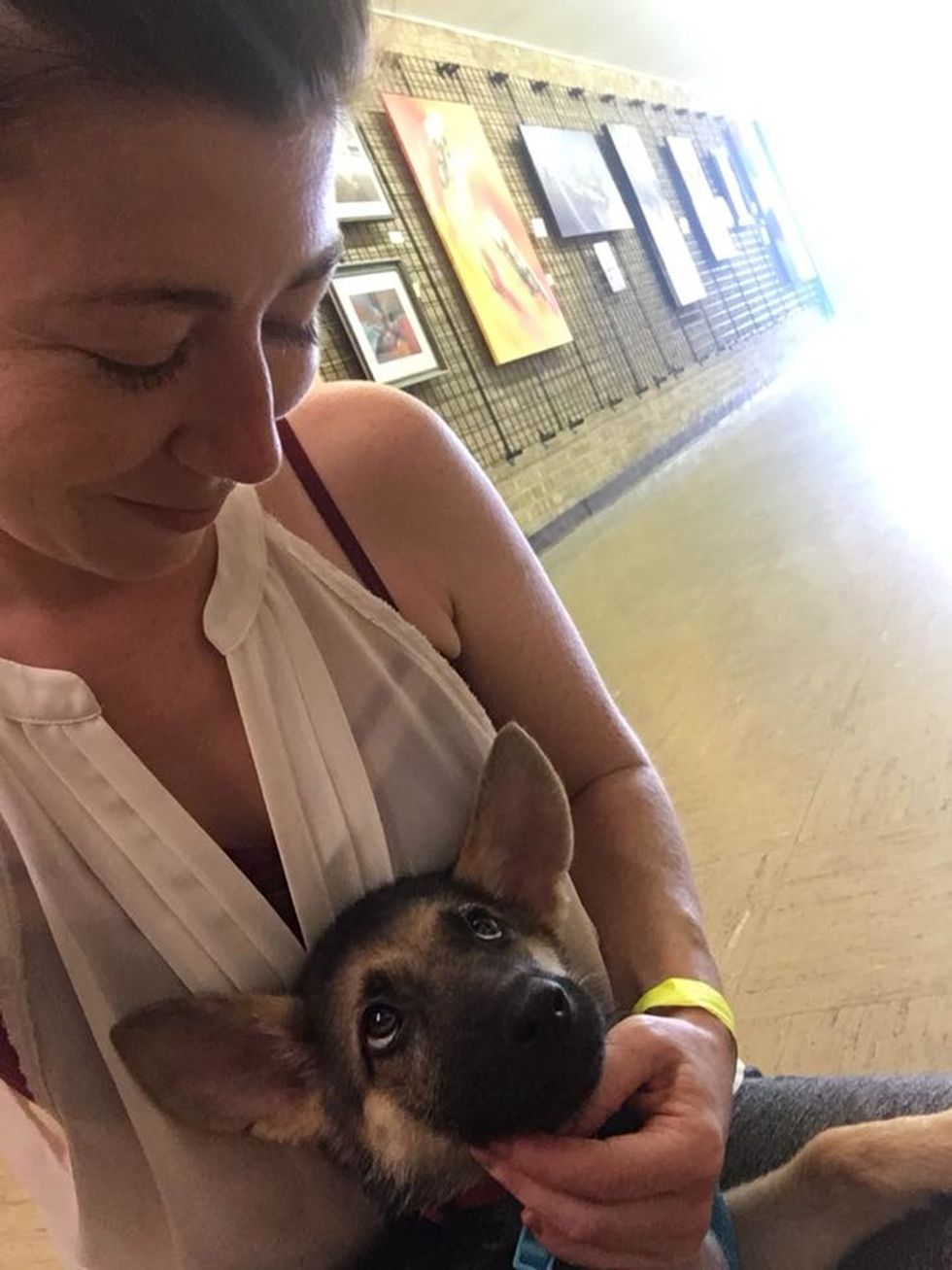
It doesn't matter what we know is best when we're struggling with overwhelming self-criticism. When the socially-indoctrinated voice in our heads is screaming fat or ugly or any other criticism, how can we break free from the noise and bring ourselves back to a place of self-acceptance, or even (gasp) happiness?
Like 99% of the human population, I went through severe body image struggles in my teenage years where I despised every part of my poor body at some point or another for one fantastical reason or another.
Now, at 29, I have a reasonably positive attitude toward my body. There are things I think are great (I wouldn't trade my freckles for the most perfect skin in the world, and I love my Irish-green eyes), things I'm happy with (I would totally go for more red but I like the mix of auburn and brown in my hair), and things I struggle to accept (the only time I actually believed my stomach was sexy was when I was unhealthily underweight, which shows both you and me I definitely still have work to do in acceptance there).
I've developed an appreciation of my body and what it can do, which bleeds into an acceptance of how I look. I've taken compliments from friends and boyfriends and repeated them back to myself as the mirror I trust when my internal mirror reflects a condemning critique. I have favorite physical qualities and when the voice in my head becomes negative, I have go-to affirmations with which to replace the criticism.
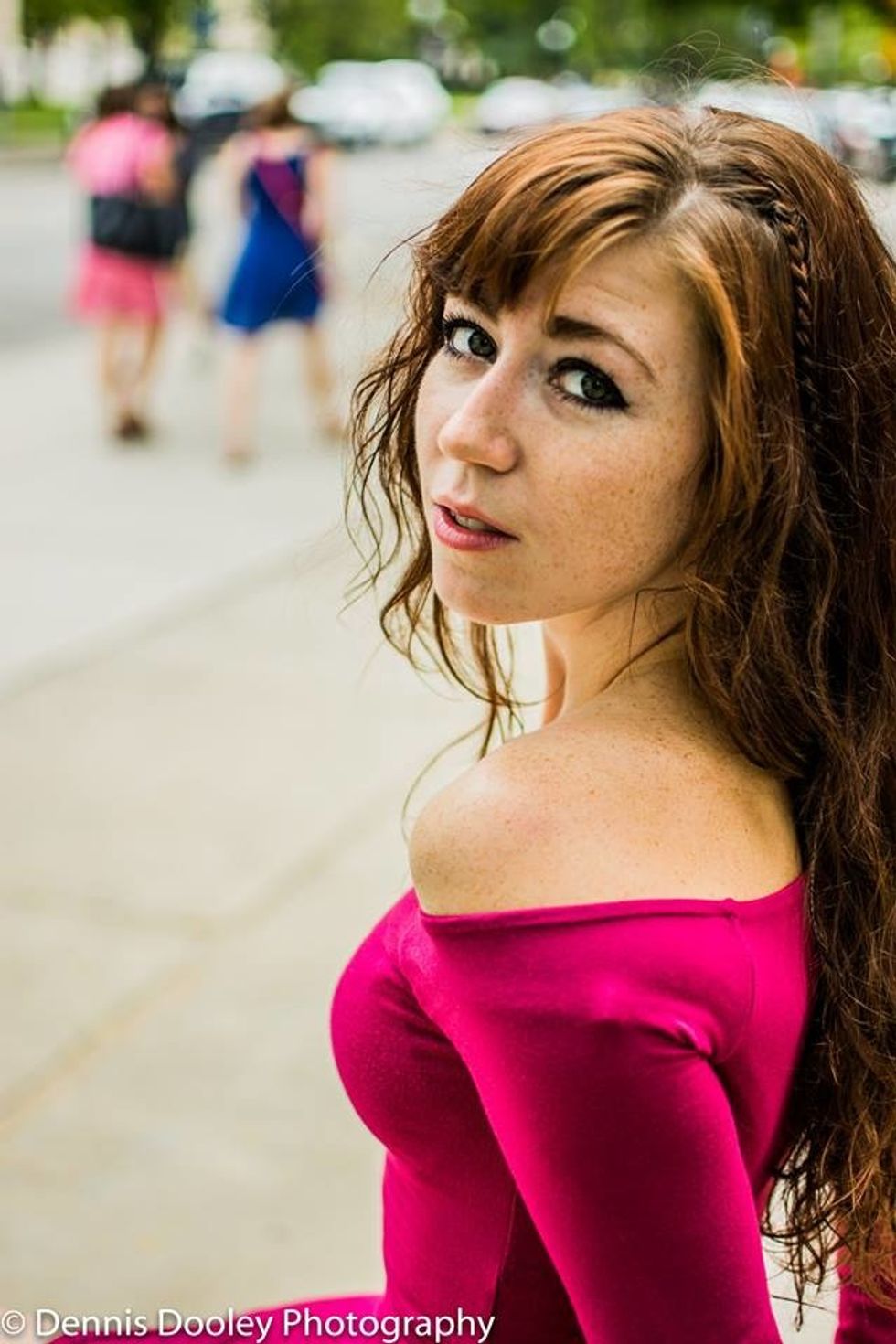
But being around other people provides a great empathetic hack for people-pleasers like me to slice through the haze of criticism and live into a place of acceptance.
When I'm around a friend and hear myself beginning to complain or make a negative statement about my physical appearance—"I feel fat and bloated today. I wish I was as pretty as she is. I can't come over, I didn't shower/put on makeup/put on cute clothes."—I stop and think: how would this make my friend feel? If I—a small dancer who has a relatively slim build—talk about how I need to lose weight to feel sexier, what does that say to the many women who aren't toothpicks? If I say that there are things about me that aren't okay the way they are, that may confirm to my friend that the things she struggles with are also not okay. It confirms that critical voice in her head.
And it doesn't honor my body for doing its job: keeping me alive, getting me places, (mostly) functioning okay, helping me live a good life. Maybe my friends' bodies have flaws, maybe not, but am I glad they're here, alive, breathing, functioning, going places, able to spend time with me because they have a body that brings them to where my body is? Heck yeah. My body can dance and breathe and laugh and love, and that is lovely—even when I feel like nothing else is.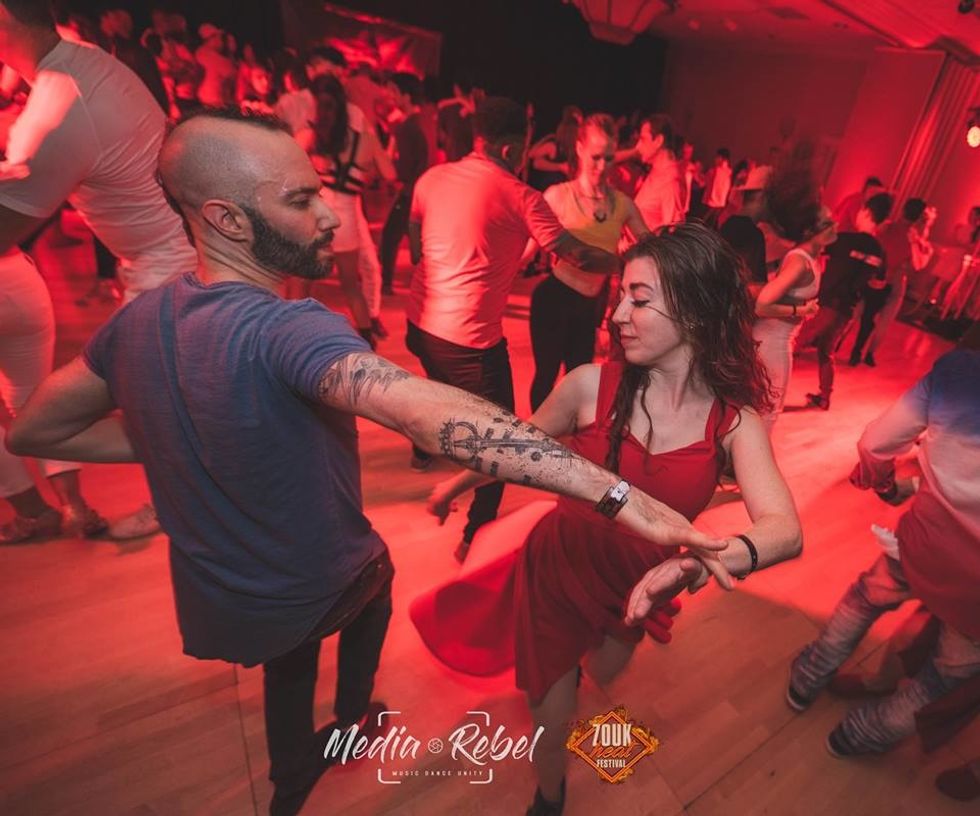
I fervently believe that all of us are beautiful, that every person is beautiful just as they are, and that we have a huge problem in our society where we create such a distorted body ideal that it makes almost everyone feel unattractive.
It can be so easy to be inundated by the criticism of the voice in my head. But I'm a people-pleaser at heart (too much so at times), and using my desire to make others happy and think about how my actions are impacting them is a fabulous hack that shocks me out of the trap of criticism. What am I modeling to those I love?
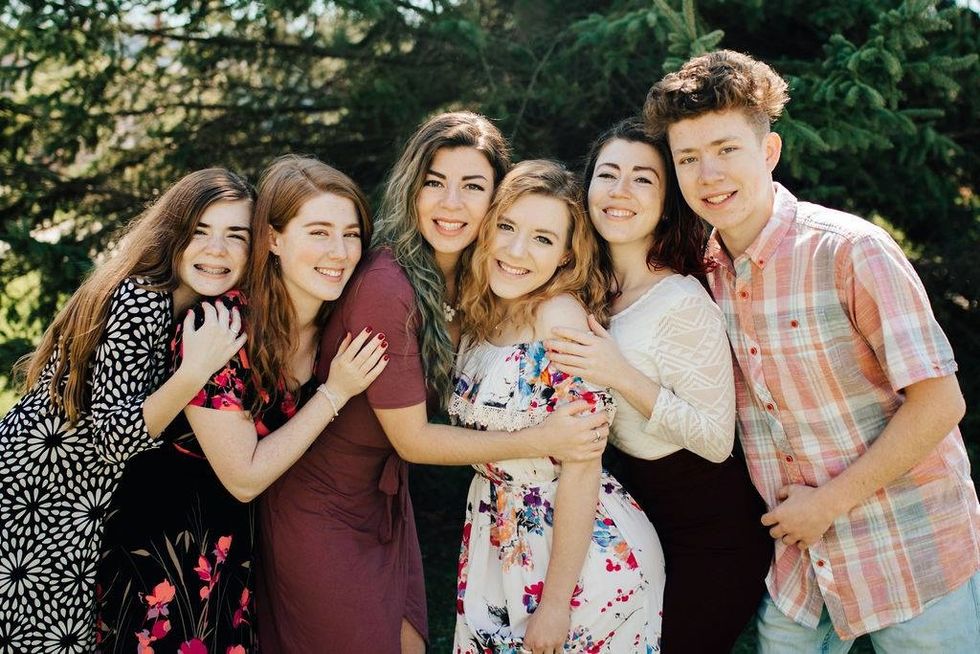
Hey, maybe I have times where I can't embrace my body for me—but I can certainly do that for a friend.
And I truly believe that if I can create a space of acceptance for myself, that can help those around me feel encouraged to find this for themselves as well. If I can do it—you can too. And here, we can help each other. We already help each other—when one of my friends puts themselves down, all of us around them so easily affirm their struggle to accept themselves or see themselves as beautiful and offer voices that contradict the critical voice in their head. This friends-affirmation is damage control.
Being able to stop the voice before it comes out and instead present body-positive ideas—like working out to be strong or healthy instead of thin, or moisturizing to be kind to your skin rather than erase wrinkles—is preventing the damage before it starts, and creating a beautiful space for your loved ones to see themselves as acceptable (maybe even beautiful) just the way they are.
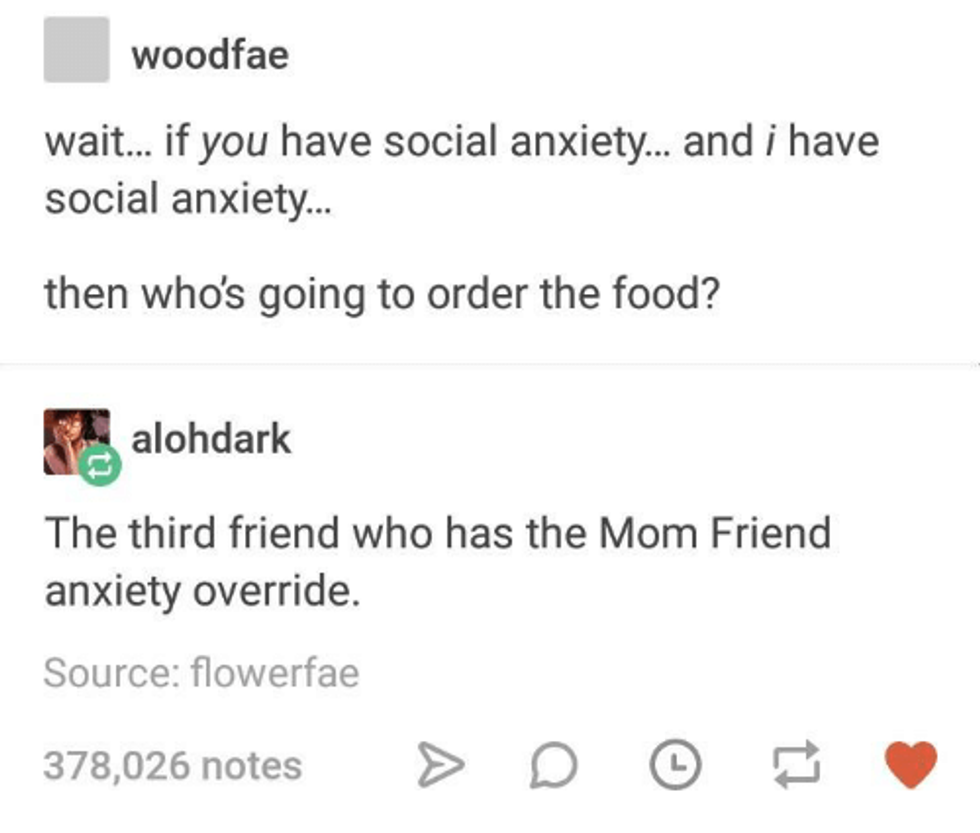
And when I've got this hack down, I level up: how would I want my friends to see themselves? To treat themselves? If I want them to be kind to themselves, then I need to be kind to myself too. Otherwise I'm just contributing to the same mindset that leaves them as well as me feeling depressed and not-good-enough.
People-pleasing hack 2.0: using our desire to make others happy to actually better our own selves and--ultimately--the world.
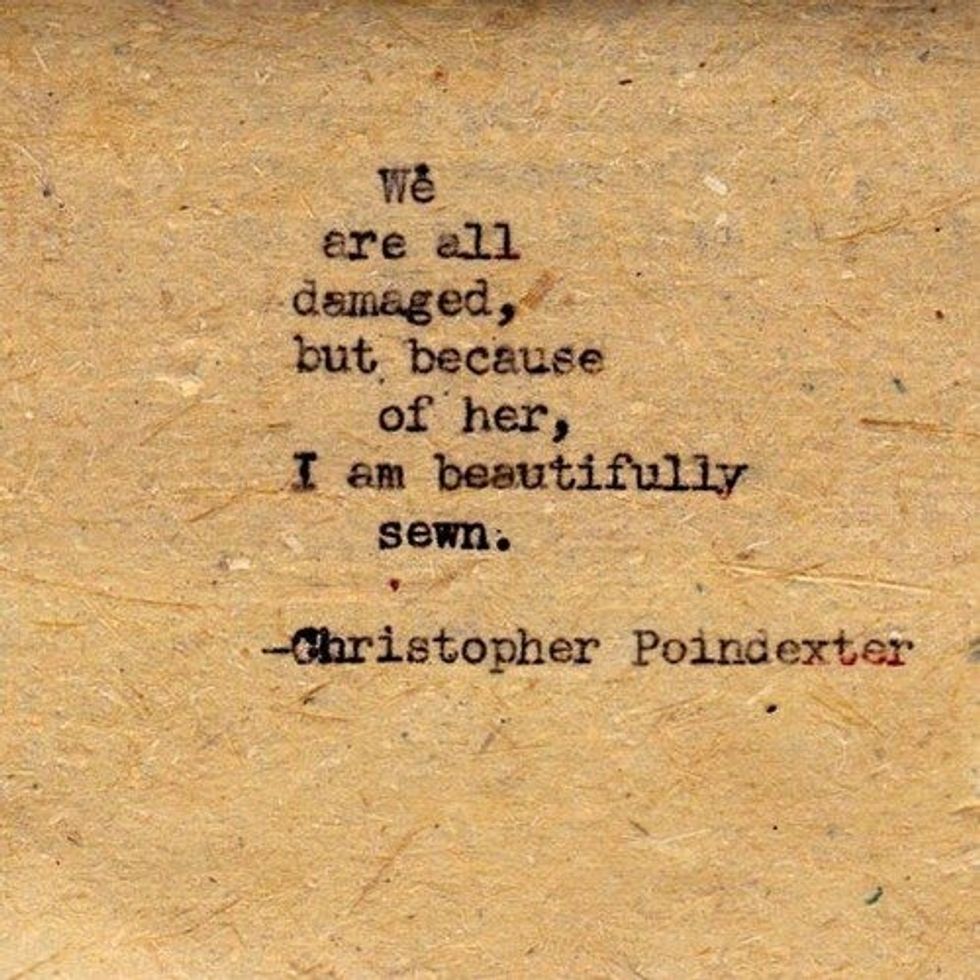
In Patrick Rothfuss's achingly resonant epic The Name of the Wind, one of the characters, Bast, beautifully summarizes when a person transitions from body-image struggles to a gorgeous internally-drawn strength:
'"No, listen. I've got it now. You meet a girl: shy, unassuming. If you tell her she's beautiful, she'll think you're sweet, but she won't believe you. She knows that beauty lies in your beholding." Bast gave a grudging shrug. "And sometimes that's enough."
His eyes brightened. "But there's a better way. You show her she is beautiful. You make mirrors of your eyes, prayers of your hands against her body. It is hard, very hard, but when she truly believes you..."
Bast gestured excitedly. "Suddenly the story she tells herself in her own head changes. She transforms. She isn't seen as beautiful. She is beautiful, seen."'
What if we lived in a world where everyone was beautiful, seen?
When I'm just trying to cover my ears from that deafening critical society-created voice, this seems an impossible goal. But the older I get (ripe old age of 29 here), the more I develop stronger self-acceptance and also coping mechanisms for when the acceptance is having a hard day. And the more I grow in acceptance and love, the more that will help others do the same.
If it takes sometimes playing mental tricks to get me there, then it takes playing those tricks. Anything to keep moving in the right direction, till someday the story we tell ourselves in our own heads changes, and we transform to be beautiful, seen.




 man running in forestPhoto by
man running in forestPhoto by 


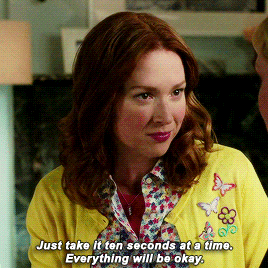


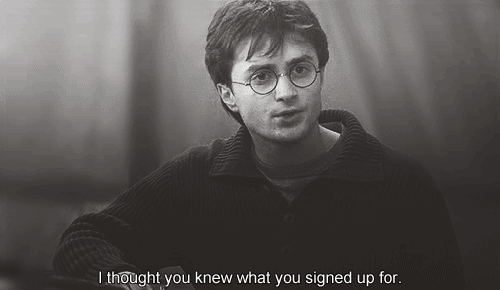 "I thought you knew what you signed up for."
"I thought you knew what you signed up for."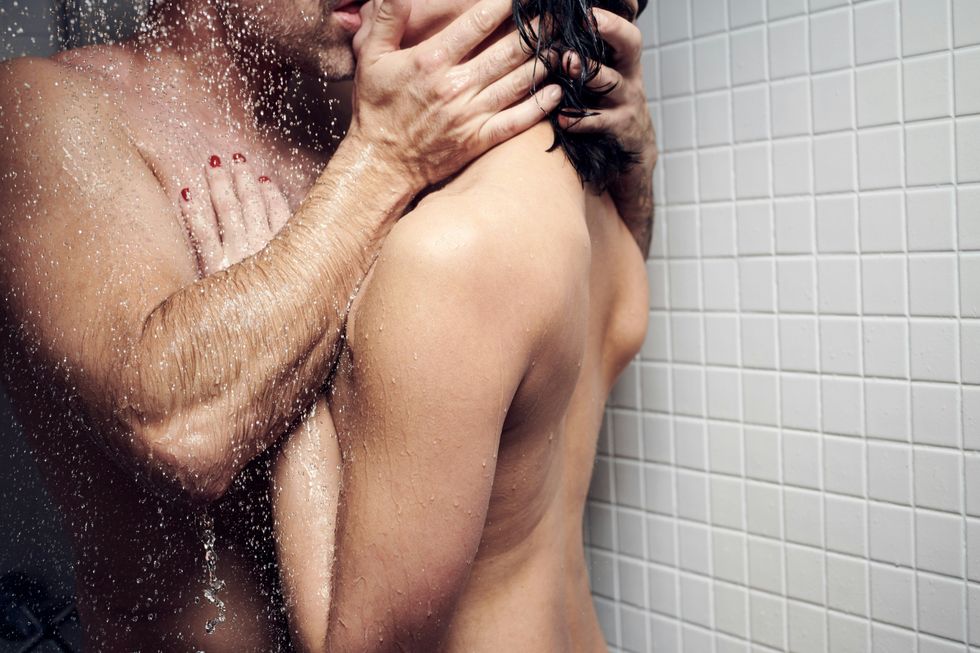 man and woman in bathtub
Photo by
man and woman in bathtub
Photo by  four women sitting on black steel bench during daytime
Photo by
four women sitting on black steel bench during daytime
Photo by 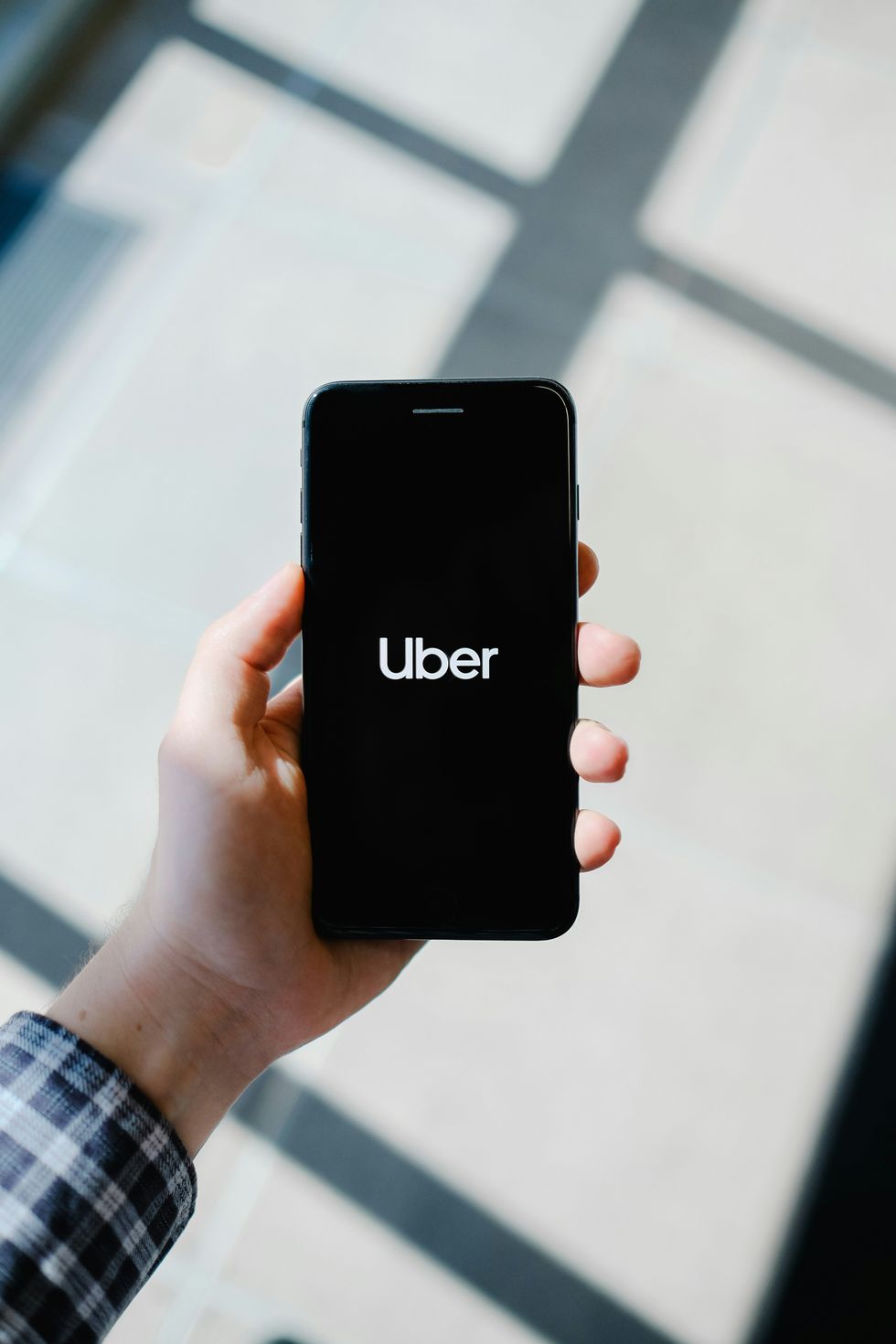 Uber app ready to ride on a smartphone.
Photo by
Uber app ready to ride on a smartphone.
Photo by  woman in red tank top and blue denim shorts standing beside woman in black tank top
Photo by
woman in red tank top and blue denim shorts standing beside woman in black tank top
Photo by 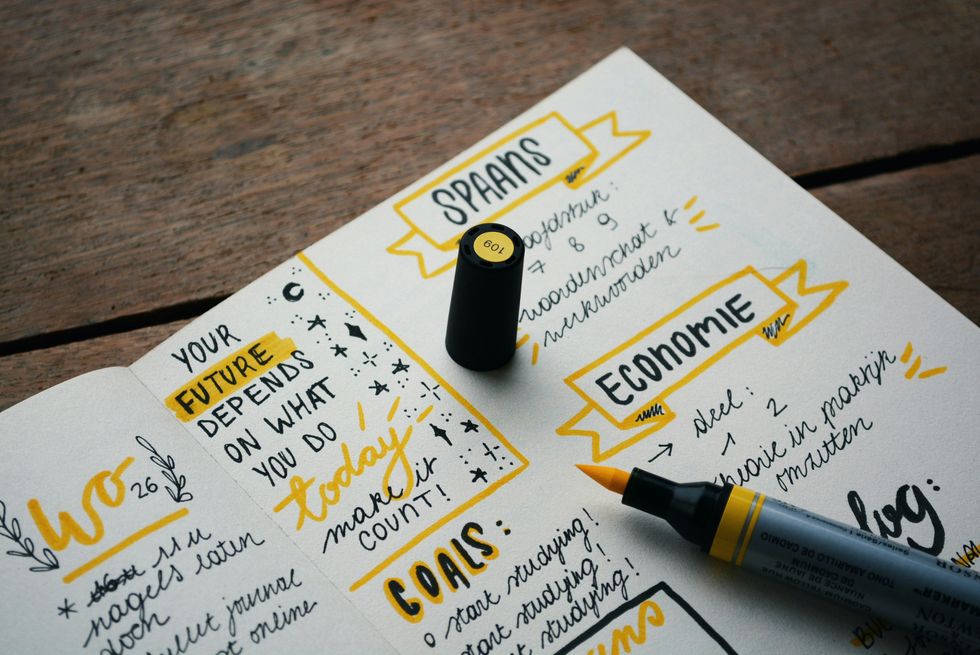 blue marker on white printer paper
Photo by
blue marker on white printer paper
Photo by  welcome signage on focus photography
Photo by
welcome signage on focus photography
Photo by 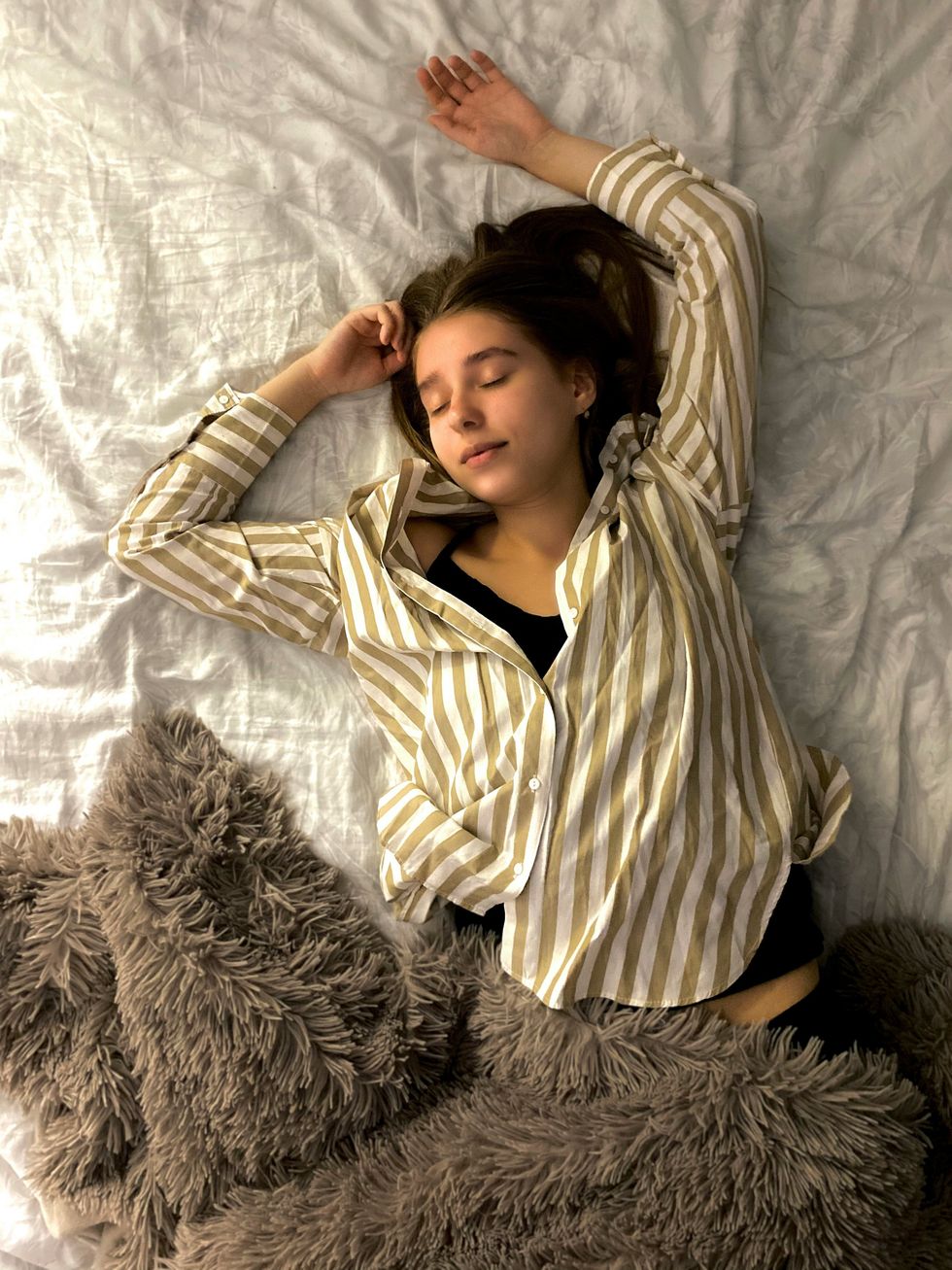 woman in white and black striped long sleeve shirt lying on bed
Photo by
woman in white and black striped long sleeve shirt lying on bed
Photo by  pink pig coin bank on brown wooden table
Photo by
pink pig coin bank on brown wooden table
Photo by 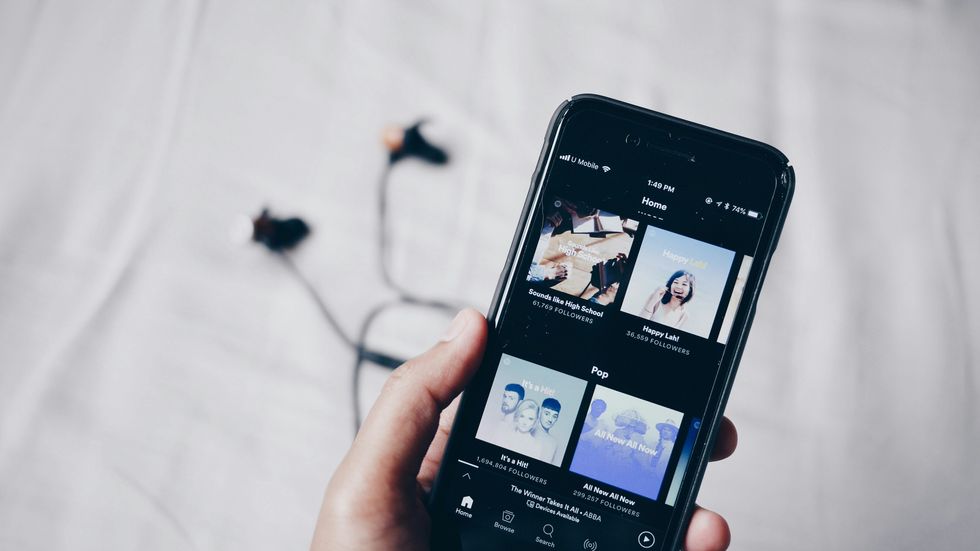 person holding iPhone 6 turned on
Photo by
person holding iPhone 6 turned on
Photo by  person holding pencil near laptop computer
Photo by
person holding pencil near laptop computer
Photo by  person slicing vegetable
Photo by
person slicing vegetable
Photo by 
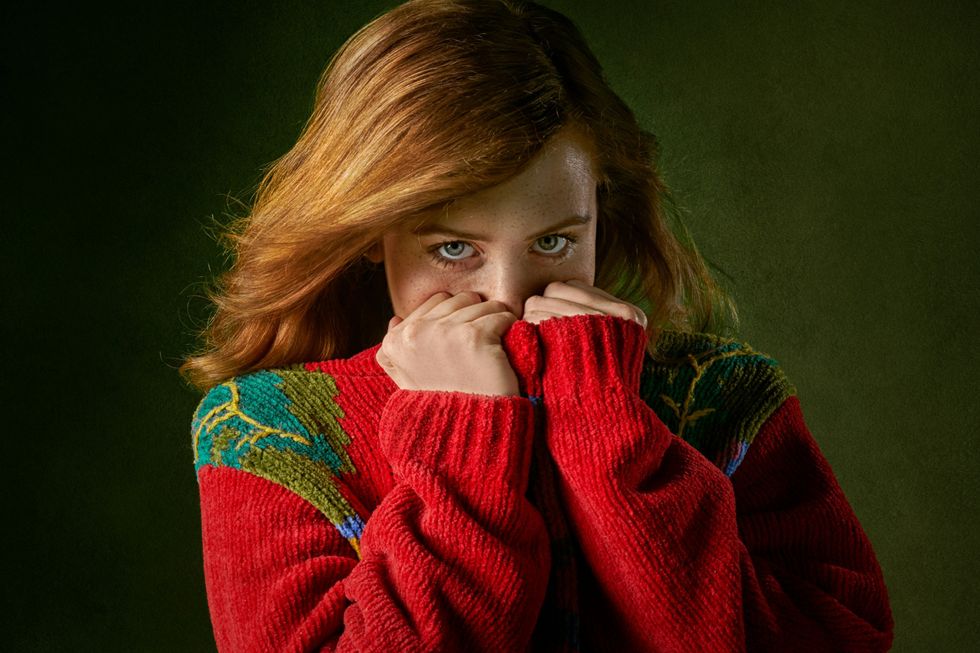 woman covering mouth with sweater
Photo by
woman covering mouth with sweater
Photo by  person holding remote pointing at TV
Photo by
person holding remote pointing at TV
Photo by 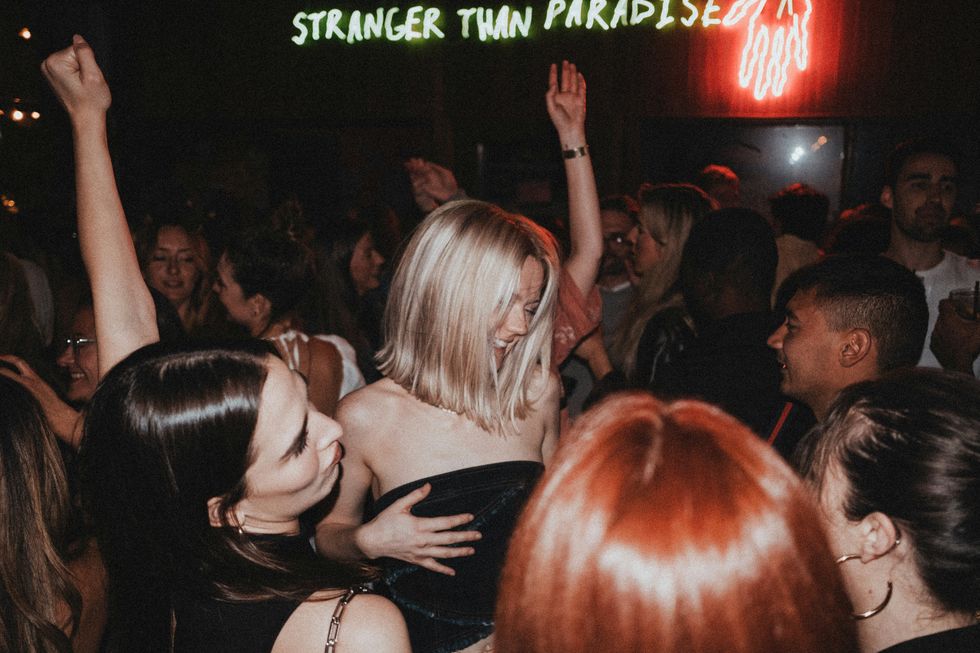 a woman with her arms raised in a crowd of people
Photo by
a woman with her arms raised in a crowd of people
Photo by  "Shocked disbelief: '95% of the population is undateable?'"
"Shocked disbelief: '95% of the population is undateable?'"








